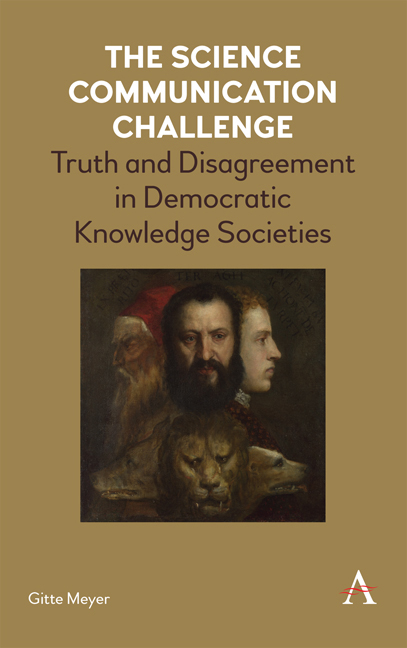Book contents
3 - The Elusive Concept of the Modern Public
Published online by Cambridge University Press: 21 June 2018
Summary
Current discussions about science communication and the roles of science in society tend to frame the relationship between (scientific) expert knowledge and (political) democracy as a social issue, or even as a social conflict between scientific experts and so- called ordinary citizens as social groups. As a probably widely unrecognized and unintended consequence of that framing, scientists appear – in their capacity as scientists – to be excluded from the general public, from the citizenry and the civic responsibility that citizenship implies.
In the city states of antiquity, the classical polis, slaves and women were excluded from citizenship, but modern democracies, in principle, grant citizenship to all adults. They are all members of the public. Thus, the tendency in the science– society discourse to exclude scientists from the public or to regard them as extraordinary citizens – whatever that might imply – appears as a thought- provoking anomaly: Which assumptions about the general public or citizenry inform the framing that places scientists outside – or even in opposition to – the general public? And, what is understood by citizenship? How, in turn, might such assumptions and understandings have evolved and how do they affect science communication routines and models of thought?
The discursive exclusion of scientists from the general public seems consistent with a view of the general public as a social rather than as a political entity. The concept of the citizenry connotes the public as a political entity, composed of co- responsible citizens. The concept of the masses connotes the public as a social entity or group composed of so- called common men. It also presupposes the existence of elites. It makes sense to exclude scientists from the public insofar as science is considered an elite activity and society is perceived in terms of a division between the masses of common (wo)men and – or versus – the elites. Scientists, then, appear as somehow uncommon – or extraordinary – men and women. Are they really? What capacities are ascribed to the supposed masses that make them common? Should scientists be considered to constitute a modern variety of aristocracy?
- Type
- Chapter
- Information
- The Science Communication ChallengeTruth and Disagreement in Democratic Knowledge Societies, pp. 63 - 96Publisher: Anthem PressPrint publication year: 2018

